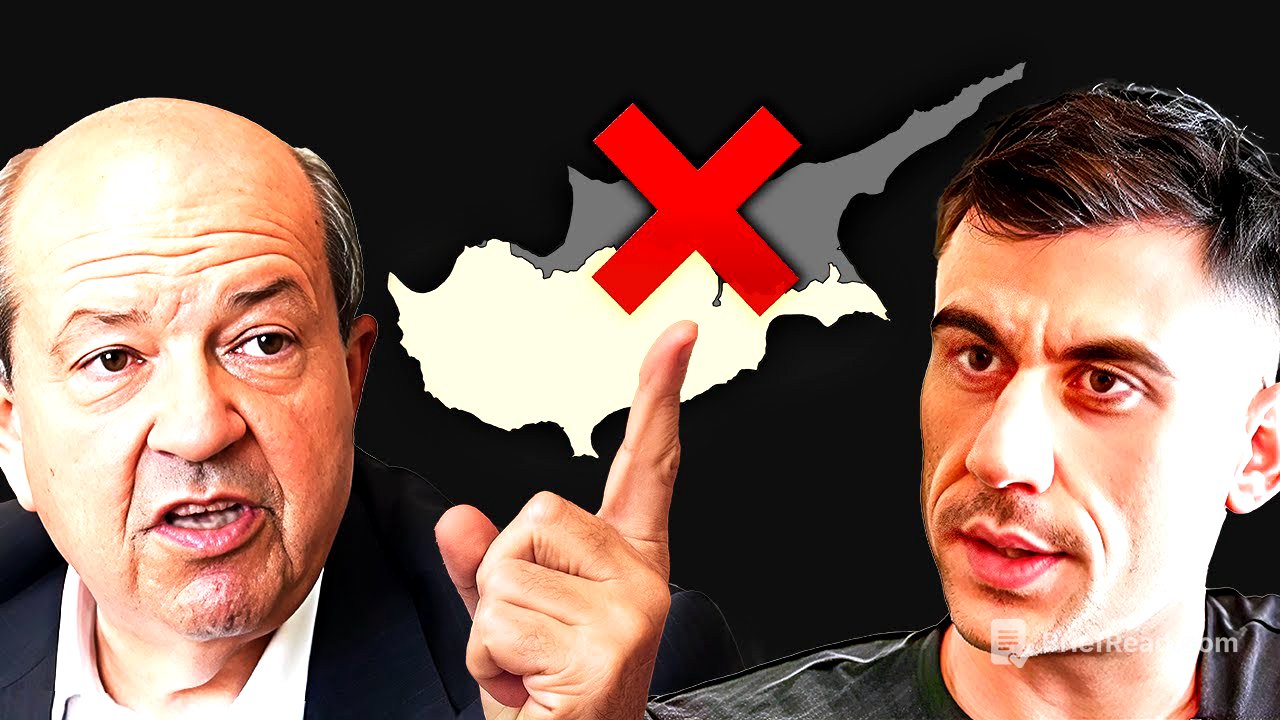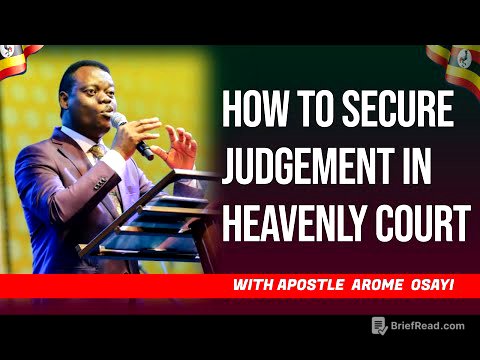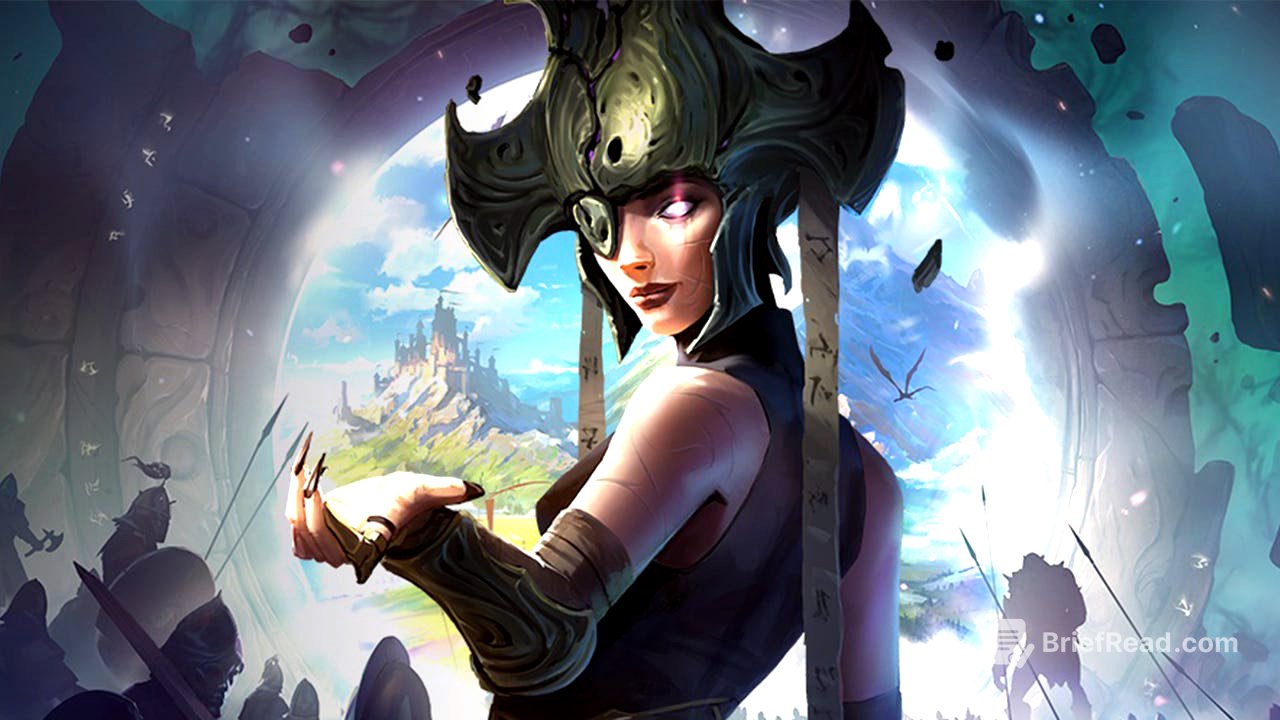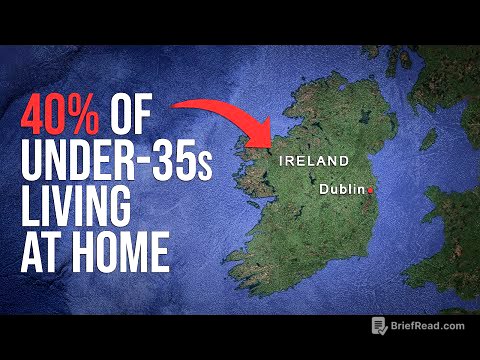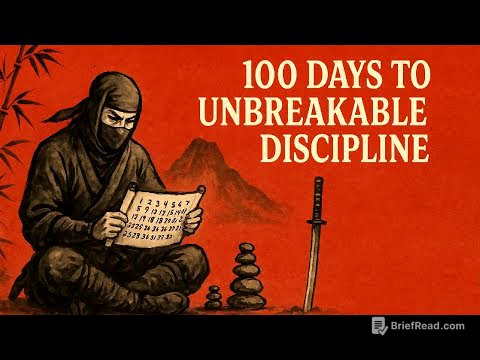TLDR;
This podcast features an in-depth conversation with Ersin Tatar, the leader of the Turkish Cypriot community, discussing the Cyprus problem, his vision for a two-state solution, and his relationships with key political figures. Tatar emphasizes the importance of recognizing Turkish Cypriot sovereignty, the need for security, and the potential for cooperation between the two communities. He also addresses criticisms about his relationship with Turkey and his leadership philosophy.
- Ersin Tatar advocates for a two-state solution in Cyprus, emphasizing the importance of recognizing Turkish Cypriot sovereignty and security.
- He discusses the historical context of the Cyprus problem, including the events of 1963 and 1974, and various attempts to find a solution, such as the Annan Plan.
- Tatar addresses criticisms about his relationship with Turkey and President Erdoğan, asserting his independence while acknowledging the importance of Turkey's support for the Turkish Cypriot community.
Intro [0:00]
The video begins with an introduction to the complex Cyprus problem, highlighting the differing narratives taught in the Turkish Cypriot and Greek Cypriot communities. The host sets the stage for a discussion about the root causes of the conflict, referencing historical events such as the EOKA period in 1963 and the Turkish intervention in 1974. The conversation aims to explore various attempts to resolve the issue, including the Annan Plan, and the vision for a two-state solution.
Fidias’ Note [3:45]
Fidias explains that this podcast with Ersin Tatar was the most challenging one he has undertaken due to the sensitivity of the Cyprus problem. As an elected Member of the European Parliament, Fidias acknowledges the potential backlash for engaging with the leader of the Turkish Cypriot community. However, he believes it is essential to understand both sides of the issue to progress towards a lasting solution. Despite facing criticism in the mainstream media, Fidias stands by his decision to conduct the interview, emphasizing his commitment to doing what he believes is right, even if it is unpopular. He assures viewers that the interview will be presented in its full, raw form, without any cuts or interruptions.
Who is Ersin Tatar? [5:19]
Ersin Tatar identifies himself as a Turkish Cypriot, emphasizing his deep connection to the land, culture, and history of Cyprus. He highlights the distinction between being Cypriot and Turkish Cypriot, rooted in his language, religion, and heritage. Tatar acknowledges the challenges and discussions he faces, but remains steadfast in his identity. He expresses gratitude to the host for providing a platform for dialogue, recognizing the sensitivity of the issues at hand. Tatar shares his personal history, including his education in the United Kingdom, his career in finance, and his eventual entry into politics. He recounts his experiences during the clashes between the two communities in 1963, emphasizing his desire to prevent such events from recurring.
His Biggest Challenge During the Last 5 Years [17:04]
Ersin Tatar identifies the biggest challenge as gaining acknowledgment for the Turkish Cypriot state, which possesses all the institutions of a functioning country, including a parliament, courts, and ministries. He explains that the Republic of Cyprus, founded in 1960, was co-founded by Turkish Cypriots, and there is no majority-minority dynamic. Tatar emphasizes the importance of respecting the Turkish Cypriot identity and the need for coexistence on the island. He notes that political recognition is limited, with only Turkey officially recognizing the Turkish Cypriot state, while other countries maintain cultural and economic ties.
Why Two-State Solution? [21:29]
Ersin Tatar explains that he has advocated for a two-state solution for 30 years, believing it is the best way forward due to the historical evolution and the dynamics between the two communities. He expresses concern that Greek Cypriots, being the stronger community, may not fully accommodate Turkish Cypriot interests within a unified Republic of Cyprus. Tatar emphasizes the importance of coexistence and sustainability in any solution, ensuring security and self-determination for both sides. He recalls his father's belief that sharing the Republic of Cyprus would be impossible due to the Greek Cypriot perspective that the island belongs primarily to them.
The Root Cause of the Problem [27:23]
Ersin Tatar identifies the root cause of the Cyprus problem as the EOKA movement during British times, which aimed to unite Cyprus with Greece. Turkey's involvement stemmed from its lease agreement with Britain and its desire to protect Turkish Cypriots and maintain its own security interests. Tatar recounts the displacement and suffering of Turkish Cypriots during the EOKA period, including the burning of villages and the displacement of a significant portion of the population. He views the Turkish intervention in 1974 as a chance to establish independence and security for Turkish Cypriots.
The Other Side of the Story [30:17]
The host points out that Tatar's account presents only one side of the story, omitting the suffering of Greek Cypriots. He emphasizes the importance of acknowledging both sides' experiences to foster understanding and resolution. Tatar acknowledges that Greek Cypriots also suffered, but insists that Turkish Cypriots endured greater hardship before 1974. He maintains that Turkish Cypriots were attacked and displaced, while the Turkish army's intervention in 1974 altered the balance.
Attempts for a Solution - The Annan Plan [33:00]
The discussion shifts to past attempts to solve the Cyprus problem, with a focus on the Annan Plan. Tatar reveals that he opposed the Annan Plan, fearing that Turkish Cypriots would ultimately lose out. He acknowledges that 65% of Turkish Cypriots voted in favor of the plan due to frustration with the existing situation and a desire for a solution. However, 76% of Greek Cypriots rejected the plan, which Tatar attributes to the European Union's decision to admit Cyprus regardless of the outcome. He believes that if EU membership had been contingent on accepting the plan, the Greek Cypriots might have voted differently.
The Vision of the Two-State Solution [39:46]
Ersin Tatar elaborates on his vision for a two-state solution, emphasizing coexistence on the island. He describes Turkish Cypriots as having a European character while maintaining strong connections to Turkey through culture, religion, and language. Tatar hopes that the Turkish Cypriot state will one day become a member of the European Union, allowing for neighboring relations with Greek Cypriots. He envisions a "New Set of Affairs" with security arrangements and Turkish involvement to ensure stability. Tatar highlights Turkey's willingness to provide resources like water and energy to both communities, fostering a win-win situation with investment opportunities.
Ukraine-Russia War [47:56]
The conversation shifts to the Ukraine-Russia war, with the host asking if there are any similarities to the situation in Cyprus. Tatar states that he doesn't see a similarity. He explains that in Ukraine, Russia wanted Crimea and other places for their own security and militaristic ambitions. The host draws a parallel to Turkey's intervention in Cyprus, but Tatar disagrees, stating that Turkey intervened to protect Turkish Cypriots and had no plans to invade.
Relationship with Turkey and Erdoğan [54:39]
Ersin Tatar describes his relationship with Turkey and President Erdoğan, calling Erdoğan a great world leader who thinks highly of Turkish Cypriots. He notes that Turkish Cypriots have received unprecedented aid and protection from Turkey during Erdoğan's 22 years in power. Tatar credits Erdoğan's vision for strengthening the Turkish Republic of Northern Cyprus as an independent state. He emphasizes the strategic importance of Cyprus to Turkey due to its location and the surrounding seas. Tatar mentions that he contacts Erdogan about once a month for important issues and that Erdogan tries to help.
Crans-Montana [1:03:10]
The discussion touches on the Crans Montana meetings in 2017, where efforts to find a way forward ultimately failed. Tatar mentions that after Crans Montana, the sentiment was that "the game is over," leading him to advocate for a two-state solution. He claims that he won the election with this new policy and has been trying to explain it to the world.
Is Ersin Tatar Erdoğan's Puppet? [1:06:43]
Ersin Tatar addresses the accusation that he is a puppet of Erdoğan, asserting that the two-state solution is his own idea. He explains that Turkey supported the Annan plan and was present at Crans Montana for a federal republic solution. Tatar emphasizes that his way of life and values are his own, and no one interferes with his personal life. He acknowledges that he and Erdoğan think alike on national issues and that Turkey provides essential support to the Turkish Cypriot community.
Opinion on President Christodoulides [1:15:07]
Tatar shares his opinion on President Christodoulides, stating that he likes him as a person but has not had much success in discussing the Cyprus problem. He mentions that they couldn't even agree to open another gate between the two sides of Nicosia. Tatar explains that he wants Christodoulides to accept the sovereign equality of Turkish Cypriots before engaging in serious discussions about the Cyprus problem.
Sanctions - Embargoes [1:21:42]
The conversation turns to the sanctions and embargoes imposed on the Turkish Cypriot community. Tatar explains that the most significant issues are the lack of direct flights and trade, which hinder tourism and economic development. He also mentions the frustration of young people who cannot participate in official sports. Tatar argues that these restrictions push the Turkish Cypriots further into the arms of Turkey, whereas if they were allowed to prosper, they would be more confident in discussing a future settlement.
What is Ersin Tatar's Salary? [1:27:53]
The host asks about Tatar's salary as the leader of the Turkish Cypriot community. Tatar states that it changes with inflation but is around 4 to 5 thousand euros per month.
Where does Ersin Tatar spend his Money? [1:28:28]
Tatar reveals that he gives his salary to his daughters and that his wife manages the household expenses. He mentions that he lives in his own house in Kyrenia and doesn't live in the presidential residence.
Does Ersin Tatar like his Life? [1:29:16]
Tatar expresses that he enjoys his life and what he does. He states that if you don't enjoy what you do, life becomes difficult. He mentions that he walks every morning and doesn't pay much attention to social media criticism.
Ersin Tatar's Philosophy as a Leader [1:30:17]
Tatar shares his philosophy as a leader, emphasizing the importance of energy, positivity, and teamwork. He believes that a leader must motivate their team by demonstrating a desire to achieve success.
Ersin Tatar's Daily Life [1:31:19]
Tatar describes his daily routine, which includes waking up early, walking with his dog, cycling, swimming, and then going to work. He states that he enjoys spending time in village restaurants with his people, as making them happy makes him even happier.
Ersin Tatar Speaks to the Greek Cypriots [1:34:39]
Tatar addresses the Greek Cypriot community, expressing his belief that if they got to know him, they would like him even more than other leaders. He emphasizes his sincerity and honesty, urging them to find a way to communicate and understand each other. Tatar expresses his desire to share resources and coexist for the betterment of all, building a future for their children and grandchildren.
Advice for Fidias [1:36:49]
The host asks for advice on how to be useful for Turkish Cypriots as a member of the European Parliament. Tatar advises him to be careful due to potential criticism but suggests asking Europeans to invite him, as the leader of Turkish Cypriots, to Brussels to discuss the situation. He emphasizes the importance of giving Turkish Cypriots the opportunity to discuss their expectations.
Final Thoughts [1:39:04]
The host reflects on the experience of interviewing Tatar, acknowledging the difficulty of having a raw conversation, especially for a leader. He thanks Tatar for his time and willingness to engage in an unfiltered discussion.
Final Question [1:40:18]
In a hypothetical scenario where he has only 30 seconds to live, Tatar states that he would want to tell Turkish Cypriots to stick to their sovereignty.
